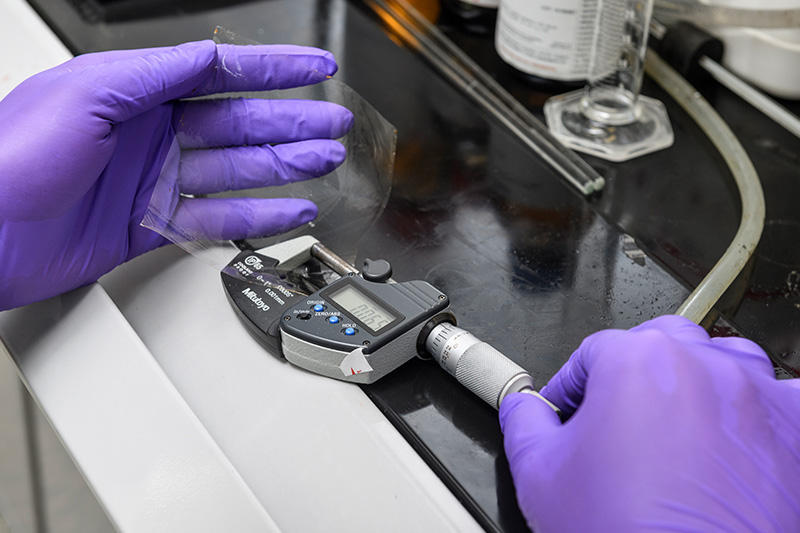
Image: Kathy F. Atkinson, University of Delaware
Fuel cells are an important technology for the nation’s energy portfolio, offering a cleaner, more efficient alternative to combustion engines that utilize fossil fuels.
However, a team of researchers from the University of Delaware point out that a major challenge in the commercialization of fuel cells is the durability of the membrane, which tends to develop cracks that short is life during operation.
A new article published in the Journal of The Electrochemical Society, “Self-Healing Composite Membrane for Proton Electrolyte Membrane Fuel Cell Applications,” aims to address the fuel cell membrane issue by developing a self-healing membrane, incorporating microcapsules prefilled with a Nafion solution.
“The microcapsules are designed to rupture when they encounter defects in the membrane and then release the prefilled Nafion solution to heal the defects in place,” says Liang Wang, past ECS member and co-author of the study.
Testing showed that the newly developed membrane and its self-healing functionality could greatly extend its useful life.

